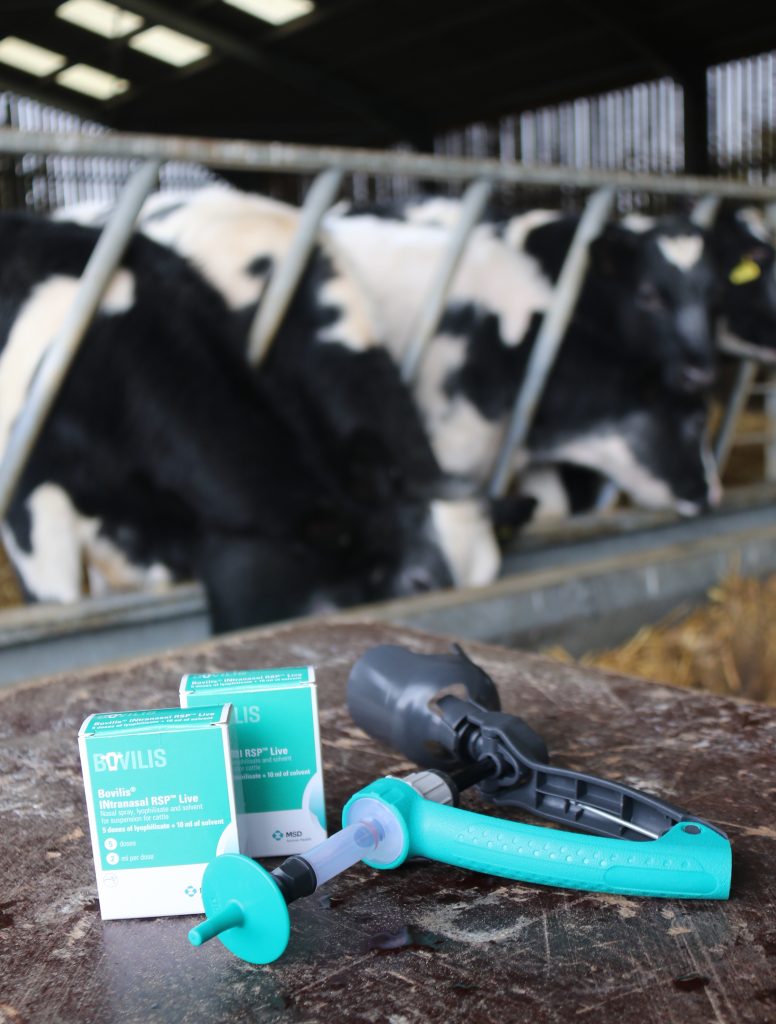New calf pneumonia vaccine could boost productivity
4th December 2019
Dairy and beef calves can now be inoculated against the key causes of viral pneumonia from one week of age, MSD Animal Health has announced.
Dairy and beef calves can now be inoculated against the key causes of viral pneumonia from one week of age, MSD Animal Health has announced.
The new Bovilis Intranasal RSP Live vaccine reduces clinical signs of respiratory disease and viral shedding from infection with bovine respiratory syncytial virus (BRSV) and parainfluenza-3 virus (Pi3V).
No other UK-licensed BRD vaccine can be administered to younger calves. MSD says the new vaccine also provides the fastest on-farm protection, with inoculated animals achieving immunity just five days after administration for BRSV, and seven days for Pi3V. Immunity lasts for 12 weeks for both viruses.
Ruminant veterinary adviser Dr Kat Baxter-Smith said protecting calves at an early age can help to prevent pneumonia and positively impact a calf’s productive future.
“The sooner and faster these young calves can be protected against viral pneumonia and the permanent lung damage it causes, the better their potential lifetime productivity, be it in terms of delivering expected milk yield in the dairy herd or growth performance on the beef unit.
“For example, replacement heifers that do not have pneumonia as calves produce over 500kg more milk in their first lactation. Beef cattle growth rates can also be compromised following calf pneumonia problems, with animals losing 202g per day as a result of disease-induced lung damage. For a beef unit looking to finish cattle at 600kg in 18 months this could mean a four-month delay in reaching the target market weight.”
The vaccine can be used on farm up to six hours after mixing with the solvent, which is the longest of all available intranasal vaccines. The product is supplied as a nasal suspension product that doesn’t need a specific applicator, although a new easy-clean injector and nozzle kit is available for farmers who need to vaccinate multiple animals.
Farmers interested in the new vaccine should contact their vet for more information.

